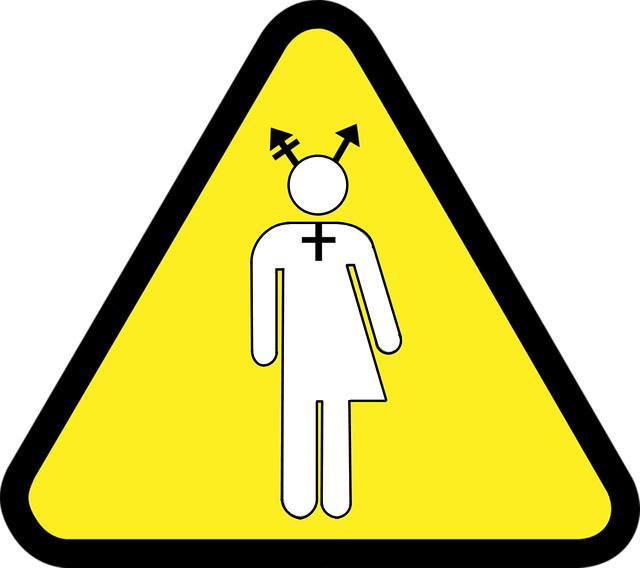Sexual indecency is a term that commonly permeates discussions surrounding moral values and societal norms. However, its meaning has often been shrouded in ambiguity, leaving room for subjective interpretations that vary across individuals and cultures. In this article, we aim to shed light on the diverse perspectives and understandings of sexual indecency, delving into its nuanced connotations and exploring how these interpretations shape our perceptions and interactions in a rapidly evolving world. By unveiling the intricacies inherent in this multifaceted concept, we hope to foster a deeper insight into the complexities of sexual indecency and stimulate a thought-provoking dialogue that transcends mere definitions.
The Impact of Sexual Indecency in Society
Sexual indecency is a pervasive issue that has significant consequences for individuals and society as a whole. It can leave lasting psychological, emotional, and physical scars on the victims involved, creating a ripple effect throughout their lives. Moreover, the impact of sexual indecency extends beyond the individual, affecting families, communities, and societal norms. Let’s delve into some of the major consequences of sexual indecency:
- Impaired mental health: Survivors of sexual indecency often suffer from various mental health conditions such as anxiety, depression, and post-traumatic stress disorder (PTSD). The trauma they experience can shape their worldview, self-esteem, and ability to form healthy relationships.
- Breakdown of trust: Sexual indecency erodes trust among individuals and communities. Victims may find it difficult to trust others, leading to isolation and a breakdown of social connections. Moreover, the perpetrator’s actions can cause widespread mistrust and fear within a community, impacting overall social cohesion.
- Perpetuation of harmful gender stereotypes: Sexual indecency reinforces harmful gender stereotypes, perpetuating the notion that women and marginalized genders are objects to be violated. This reinforces power imbalances and contributes to gender inequality in society.
Addressing sexual indecency requires a comprehensive approach that encompasses education, prevention, and support for survivors. By promoting consent education, challenging harmful beliefs and attitudes, and providing resources for survivors, society can work towards creating an environment that is safe, respectful, and free from sexual indecency.
The Cultural Context of Sexual Indecency and Its Varied Definitions
When discussing sexual indecency, it is crucial to acknowledge that its interpretation and cultural context differ greatly across the globe. Understanding these varied definitions is essential to promote healthy discussions about consent, boundaries, and societal expectations. Here are some key points to consider when examining the cultural context of sexual indecency:
- Social norms and values: What may be considered as sexually indecent in one culture is often seen as acceptable or even celebrated in another. These differences arise due to diverse cultural norms, religious beliefs, and social expectations. It is important to approach discussions surrounding sexual indecency with an open mind and to respect the values and customs of different societies.
- Historical perspectives: The perception of sexual indecency has evolved over time. What was once deemed taboo may now be widely accepted, and vice versa. Historical events, changing societal attitudes, and advancements in gender equality have played significant roles in shaping these perspectives.
In conclusion, recognizing that sexual indecency is heavily influenced by cultural context is crucial to fostering understanding and empathy. By embracing diversity and engaging in thoughtful conversations, we can work towards creating a more inclusive and respectful global society.

Unraveling the Psychological Perspectives on Sexual Indecency
In today’s society, the topic of sexual indecency is one that sparks intense discussions and debates. From a psychological perspective, understanding the underlying factors that contribute to this behavior is crucial in order to address it effectively.
One important perspective to consider is the social-cognitive theory, which suggests that individuals learn and model sexual behavior through observation and imitation. This means that exposure to explicit content, such as explicit media or inappropriate conversations, can influence someone’s perception of what is acceptable. Furthermore, cognitive distortions, such as rationalizing or minimizing the consequences of sexual misconduct, can play a significant role in promoting such behavior.
- Factors contributing to sexual indecency:
- 1. Societal norms and cultural expectations
- 2. Individual susceptibility to peer pressure
- 3. Lack of comprehensive sex education
- 4. History of trauma or abuse
Another psychological perspective that sheds light on sexual indecency is the psychoanalytic theory. According to Freud, sexual misconduct may stem from unresolved conflicts during early development stages. These unresolved conflicts manifest themselves in the form of unconscious desires and drives, which can lead individuals to engage in inappropriate sexual behaviors as a way of fulfilling these unconscious desires. This theory emphasizes the importance of exploring and resolving these underlying conflicts through therapy or self-reflection.
Understanding the psychological perspectives on sexual indecency allows us to address the root causes of such behavior and develop targeted interventions and prevention strategies. By focusing on education, promoting healthy boundaries, and fostering open dialogue, we can create a society that values consent, respect, and healthy sexual relationships.
Addressing Sexual Indecency: Promoting Consent, Respect, and Healthy Boundaries
In today’s society, it is crucial to prioritize promoting consent, respect, and healthy boundaries to address the issue of sexual indecency. By establishing a culture that values these principles, we aim to create safer and more inclusive environments for all individuals.
Here are some key strategies we can employ to promote these values:
- Education: Implement comprehensive sex education programs that focus not only on the biological aspects but also on consent, healthy relationships, and communication. By educating individuals from an early age, we can empower them to develop a deep understanding of boundaries and consent.
- Open Dialogue: Encourage open conversations about consent and healthy boundaries in both personal and professional settings. By fostering an environment where people feel comfortable discussing these topics, we can challenge harmful beliefs and encourage mutual respect.
- Consent Culture: Promote a consent-centered culture that emphasizes the responsibility of each individual to seek enthusiastic consent before engaging in any sexual activity. It is essential to recognize that consent should be ongoing, mutual, and can be withdrawn at any time.
- Support Systems: Develop robust support systems for survivors of sexual indecency, including access to counseling, helplines, and survivor-led support groups. By providing these resources, we can assist survivors in their healing process and encourage them to seek help without fear or stigma.
To eradicate sexual indecency, promoting consent, respect, and healthy boundaries must be a collective effort. By implementing these strategies, we can foster a society where consent is valued, respect is paramount, and individuals can thrive in a safe and supportive environment.

Fostering a Comprehensive Sex Education to Combat Sexual Indecency
Sexual indecency continues to be a persistent concern in society, affecting individuals and communities alike. One effective way to tackle this issue head-on is by fostering a comprehensive sex education for people of all ages. By providing accurate and age-appropriate information, we can empower individuals to make informed decisions regarding their sexual health and relationships. This approach eliminates the knowledge gaps that often lead to misconceptions, stigma, and dangerous behavior.
A comprehensive sex education curriculum covers various aspects, including but not limited to:
- Anatomy and reproductive health: Understanding the human body and its reproductive systems is fundamental in promoting self-awareness and respectful behavior.
- Safe sex practices: Educating people about contraception methods, sexually transmitted infections (STIs), and the importance of consent fosters responsible and consensual sexual behavior.
- Positive relationships and consent: Teaching individuals about healthy relationships, boundaries, and consent empowers them to build respectful connections based on open communication and mutual understanding.
- Gender and sexual diversity: Including discussions on gender identity and sexual orientation helps combat prejudice and discrimination, fostering a more inclusive society.
A comprehensive sex education not only equips individuals with crucial knowledge but also promotes empathy, understanding, and respect towards others. By embracing this approach, we can create a safer and more enlightened society, where sexual indecency becomes a thing of the past.

Navigating the Legal Dimensions of Sexual Indecency: Legislation and Enforcement
When it comes to sexual indecency, understanding the legal dimensions is crucial to ensuring a just and safe society. Legislation plays a vital role in defining what constitutes sexual indecency and providing guidelines for appropriate behavior. Each jurisdiction may have its own set of laws, but common elements exist across many legislations:
- Consent: One key aspect of legislation emphasizes the importance of consent in all sexual interactions. Consent should be enthusiastic, ongoing, and freely given by all parties involved.
- Age of consent: Legislation sets a specific age at which an individual is considered legally able to give consent. This ensures that minors are protected from exploitation or abuse.
- Public and private spaces: Laws distinguish between sexual behavior in public and private settings. Sexual acts deemed inappropriate in public can attract legal consequences, while private consensual acts are generally protected.
Enforcement of sexual indecency laws lies in the hands of law enforcement agencies and judicial systems. These entities play a crucial role in upholding the legislation and ensuring accountability for those who commit acts of sexual indecency. A few key enforcement methods and considerations include:
- Investigations: Law enforcement agencies must conduct thorough and impartial investigations to gather evidence and determine whether sexual indecency has occurred. This often involves interviewing victims, witnesses, and suspects, collecting forensic evidence, and collaborating with other departments or agencies.
- Legal proceedings: If sufficient evidence is found, legal proceedings are initiated. This involves presenting the case before a court, ensuring due process, and allowing all parties to provide their side of the story. Prosecutors play a critical role in presenting evidence and arguing for appropriate consequences.
- Punishments and rehabilitation: Once perpetrators are found guilty, enforcement agencies work in collaboration with the judicial system to ensure appropriate punishments are imposed. In addition to penalties, rehabilitative measures may be implemented to prevent future offenses, such as counseling, education programs, or supervision.
Promoting Awareness and Empathy to Prevent Sexual Indecency
Creating awareness and fostering empathy are crucial steps towards preventing sexual indecency in our society. By promoting open discussions and education, we can work together to eradicate this issue. Here are some key ways in which we can raise awareness and cultivate empathy:
- Educational Programs: Implementing comprehensive sex education in schools can help young individuals better understand boundaries, consent, and healthy relationships. By empowering them with knowledge, we equip them to make informed decisions and recognize unacceptable behavior.
- Community Engagement: Engaging with our local communities is vital in promoting empathy towards survivors of sexual indecency. Organizing workshops, support groups, and events allows individuals to share their experiences, reducing stigma and fostering a compassionate environment.
- Media Representation: Encouraging responsible and diverse media representation is essential in combatting misconceptions and stereotypes related to sexual indecency. By showcasing respectful relationships and portraying the consequences of misconduct, we can shape societal attitudes and promote empathetic behavior.
Moreover, it is crucial to address the underlying factors that contribute to sexual indecency. By acknowledging the influence of power dynamics, systemic inequalities, and social norms, we can challenge and dismantle the structures that enable such behavior. Emphasizing consent, respect, and communication as integral components of healthy relationships will contribute towards a more empathetic society, where sexual indecency becomes a thing of the past.
Frequently Asked Questions
Q: What is sexual indecency and how can it be defined?
A: Sexual indecency refers to behavior or actions that are considered offensive, lewd, or inappropriate in a sexual context. It encompasses a range of activities that violate accepted social standards and may include explicit gestures, comments, or exposure of intimate body parts.
Q: Is the concept of sexual indecency universally defined or does it vary across cultures?
A: The definition of sexual indecency can indeed vary across cultures. What is considered indecent in one society may be accepted or even celebrated in another. Cultural norms, values, and religious beliefs often influence how sexual indecency is understood and regulated.
Q: Can you provide examples of behaviors that generally fall under the umbrella of sexual indecency?
A: Some examples of behaviors associated with sexual indecency may include public displays of sexual acts, distributing explicit materials without consent, making unwanted sexual advances, or engaging in non-consensual touching or harassment.
Q: Are there legal consequences for engaging in sexual indecency?
A: Yes, there can be legal consequences for engaging in sexual indecency depending on where it occurs. Each country has its own laws and regulations regarding sexual behavior, with some explicitly criminalizing certain acts and behaviors associated with sexual indecency.
Q: How does consent play a role in cases of sexual indecency?
A: Consent is a fundamental aspect in any sexual encounter. Acts that involve sexual indecency often lack consent, meaning that one or more parties did not give their voluntary, informed, and unambiguous agreement to engage in specific sexual behaviors.
Q: Can individuals have different interpretations of what constitutes sexual indecency?
A: Certainly, individuals can have varying interpretations of what they consider to be sexual indecency. Factors like personal experiences, cultural upbringing, and individual beliefs can shape one’s understanding and perception of what is indecent or inappropriate in a sexual context.
Q: What are the potential consequences for victims of sexual indecency?
A: Victims of sexual indecency may experience various negative consequences, both physical and psychological. These can include trauma, anxiety, depression, feelings of violation, self-blame, and a decline in emotional well-being. The impact of such experiences can be long-lasting and require support and healing.
Q: How can society address the issue of sexual indecency effectively?
A: Addressing sexual indecency requires collective effort. Societal measures can include comprehensive sex education, promoting consent culture, enforcing strict laws against sexual harassment and assault, encouraging open dialogues about healthy relationships and consent, and creating a safe environment for victims to report incidents without fear of judgment or retribution.
Q: Is there ongoing research to better understand sexual indecency and its implications?
A: Yes, researchers and experts continue to explore the complexities of sexual indecency, its causes, impact on victims, and effective ways to prevent and address it. Ongoing studies aim to shed light on this issue to inform policies and interventions that can work towards reducing and eliminating instances of sexual indecency. In conclusion, the concept of sexual indecency is subjective, varying across cultures and individuals. Understanding these interpretations promotes a respectful and inclusive dialogue around sexuality and consent, fostering a more inclusive and understanding society.


